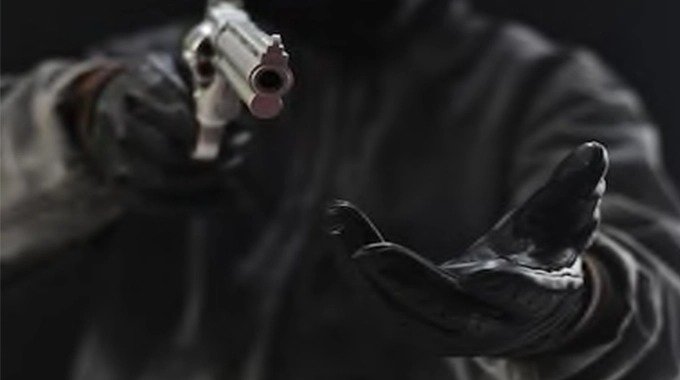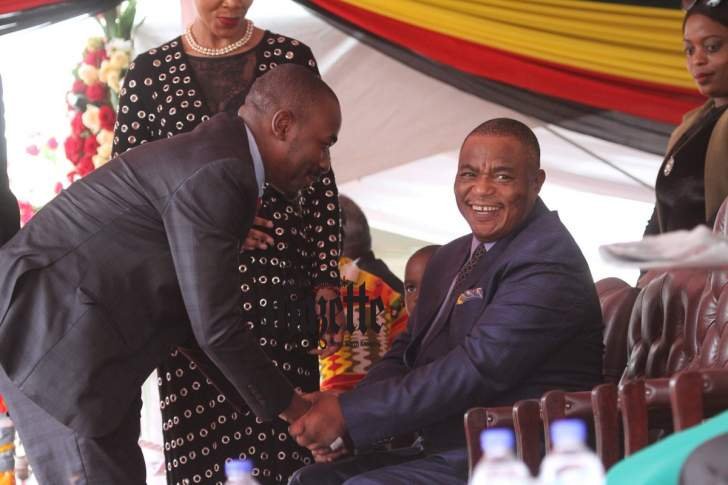– I am black, young, wise, educated and angry. Most times, I am a very angry young black man. I have to be angry because even in an all-black community that I grew up in, the standards of success and progress are still measured by “whiteness”.
So every time I find my blackness questioned and being placed below “whiteness”, I strongly believe that my anger is vindicated.
I spent the whole of last week in my community, in the village of Masobye, in Mpumalanga, which is something I haven’t done in a while.
Usually, my stay at home includes attending community gatherings, visiting our old-age home, checking out popular spots, like Ko Dipitseng (they prepare African cuisine dishes).
In one of my stops there, a conversation about being called Makgowa, white people, ensued. This was after I asked for clean water to wash my hands before indulging in the mouthwatering meal I had ordered. The guy said: “Eish, gape bo Kabelo ke Makgowa (Kabelo has white people’s tendencies), get him some clean water to wash his hands.”
I don’t want to be called or labelled white. Because normally, in a black community, “whiteness” is seen as the embodiment of demanding things to be done right for you and having high standards in life.
In the same breath, the guy who ordered after me asked to be excused to go fetch money from his house. Apparently he had forgotten his wallet. The remarks were: “He has started, you see, black people can’t be trusted, I even doubt he has got money, I don’t even think he is going to come back.”
He went back to that line again: “If it was you, Lekgowa (calling me white), I know you would come back.”
I got so agitated. To him, our development or progress as black people is aspiring to “whiteness”.
Because, “whiteness” is a prototype of being faithful, having money, being trustworthy and so forth.
However, blackness is something he did not associate with me and how I carry myself, yet for him, how the guy conducted himself was a classic “blackness” behaviour that was the epitome of untrustworthiness and unreliability.
I called him out. I was so angry. I had every right to be angry at him because he thought that by calling me a resembler of “whiteness”, he was complimenting me.
All my life, I have identified as black. I have always wanted to clean my hands after coming out of the toilet or before I ate. It is for good hygiene purposes.
Even when poverty wanted to dictate my self-worth, I never forgot to be clean. I shouted; “I am black! My behaviour and requests stem from who I am. Nothing I did here or that I will do next is any less black or a reflection of ‘whitenes”’.
The late Steve Biko said; “Merely by describing yourself as black, you have started on a road towards emancipation, you have committed yourself to fight against all forces that seek to use your blackness as a stamp that marks you as a subservient being.”
I don’t aspire to whiteness. The next time I go home, I am definitely taking on the taxi drivers for calling us Makgowa just for two reasons – he is responsible for taking us from point A to B, and that we pay him for that service.
In other words, how is having a designated driver and having money to pay, deemed white? It seems that nothing can be fundamentally associated with blackness. The taxi-rank language pushes these narratives – black people can’t afford, black people cannot have a designated driver, black people cannot be associated with anything that money can afford. This is why some black spaces anger me.
Our identity as blacks cannot be stuck in the apartheid years where the pigmentation of our skin meant we were seen as subservient and lesser beings whom one cannot expect anything good from.
These spaces of blackness need to redefine blackness. Because identity isn’t static, it is mercurial and it changes with the continuously changing society.
I envisage a time and space where I could define myself as Bell Hooks when she said: “If I were really asked to define myself, I wouldn’t start with race; I wouldn’t start with blackness; I wouldn’t start with gender; I wouldn’t start with feminism. I would start with stripping down to what fundamentally informs my life, which is that I’m a seeker of the path. I think of feminism, and I think of anti-racist struggles as part of it. But where I stand spiritually is, steadfastly, on the path of love.”
That would be how I want to identify myself. But first, my blackness has to be respected for its blackness.
Until then, I will remain black, young, wise, educated and proudly angry.
* Chabalala is the founder of the Young Men Movement (YMM). E-mail,kabelo03chabalala@gmail.com; Twitter, @KabeloJay; Facebook, Kabelo Chabalala
** The views expressed here are not necessarily those of Independent Media.








